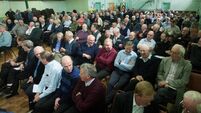We can't let the trolls destroy public debate

The reflexive 'fake news' charge reflects a wider mistrust of media and institutions.
My recent piece on President Trump’s “migrant crime wave” garnered social media commentary that said less about crime and more about how we engage with the news. I had deliberately included evidence from conservative and libertarian think tanks - across 150 years of United States data and peer-reviewed studies - showing that migrants to the United States are, on average, less likely to offend than native-born Americans. But the article’s reaction told its own story. The comment section quickly filled up, not with debate about the data, but with dismissals, fears, projections, and accusations.
It's clear that many hadn’t actually read my piece or chose to misinterpret it. A UK-based, Man-United supporter, who posted about the Great Replacement and Transgender conspiracy theories (including 'UK Enacts Plan to Stop Rape Gangs by Arresting All Potential Rape Victims'), simply wrote: “Good old fake news zzzzzzzzzzz.”
A strong supporter of County Mayo History and Heritage Facebook posts, chose to ignore the right-of-centre sources I used and chipped in with:
“Whoever wrote this must be listening to CNN 24/7.”
An Irish ex-pat, living in the States, who lacks the understanding of the word ‘ignorant’ (I had included facts and sources in my article) dismissed it as: “A completely ignorant assessment of what’s happening along with the usual factually inaccurate reporting by the .”
This reflexive “fake news” charge is not unique to trolls of the . It reflects a wider mistrust of media and institutions, where the label “propaganda” is quicker to hand out than a counter-argument.
Others expressed fears not about crime statistics, but about migrants supposedly exploiting welfare systems. While I was referring to the United States' experience, a Mayo local who once appealed on Facebook for everyone not to subscribe to Irish Water contracts, felt the need to declare:
“No bother with anyone coming to Ireland to work just don’t want my tax paying for anyone to be on the dole or getting a free house, medical card, free phone or free phone credit, electricity, money to repair there [sic] car, etc etc. Anybody coming to Ireland should have to work a mimium [sic] of 30 years BEFORE they can apply for any benefits here.”
While he is clearly taking aim at refugees and asylum seekers in Ireland, in the United States the trope of the “welfare scrounger” migrant is just as deeply rooted. But as the research shows, undocumented migrants in America pay billions in taxes while receiving little or no benefits in return.
Some comments drew on family history. An older Irish-American whose own Facebook profile blends images of nature, religious posts and American patriotism (a bald eagle and the US flag is particularly noteworthy) wrote: “Migrants [sic] dad came here legally and did what they needed to do to get into the country legally. As my parents did in the 50s. We are talking about where the borders were left wide open, and there was mass illegal immigration. There is a difference between those who just came in and caused crime as to those who came into better their life.”
While seemingly frustrated with ‘open borders’ which Trump blamed on his predecessor Joe Biden, she conflates all illegal immigrants with those causing crime, while my article confirmed that there is no evidence of any significant difference between groups regarding serious crime in the United States.
Other comments went further, linking migration to conspiracies about global elites. A strident Irish-American Trump supporter who reposts claims about “turbo cancers” caused by vaccines and Vladamir Putin liberating the world from a “New World Order” and “Rothschild banking cartel”, declared: “Bidens open borders caused the problem… HE let in 20 million, the problem of thousands of drug dealers gangs of child molesters and traffickers not good for any Country, Thank God for President Donald Trump for saving the US and the whole World.”
When challenged, she demanded her detractors “educate themselves”: “Ireland is being invaded by Lunatics, and none of your Leaders have spoken out about it; very sad indeed, what’s it going to look in 10 years, you probably can’t See that Far.”
Aside from the fact-free version of her political views (and wholesale immersion in Trump’s 'Hannibal Lecter' propaganda), here we see the merging of United States border fears with Irish debates about asylum and projection of American talking points onto Irish realities.
Some turned their anger directly on this newspaper. A Liverpool FC supporter who ecumenically despises Sinn Féin, Fine Gael and the Green Party, while believing “woke Facebook police dipshits will lock you out instantly” if you post about scams on the platform, wrote: “Once again this sellout newspaper is talking about Trump the president of a foreign country not a mention about Harris and never a sound about news in this county… I thought it was a local paper.”
It is a local paper. Hence why we have all the local news. Even my column is written from the point of view of a Mayo man living in the United States. But this is another recurring pattern: distrust of media coverage itself.
Not all the comments were hostile. Many supported the article and several asked had my critics actually read my article in full (it seems not).
I also received a private message from an Irish-American law enforcement veteran who strongly disagreed with me, calling my article ‘inaccurate’ and ‘mumbo jumbo’ (while admitting he had only read part of it) but after I reached out to him, we had a thoughtful and respectful conversation. Our dialogue didn’t end there. He explained his perspective from years of hands-on experience with criminality, including horrific human trafficking:
“The biggest victims of illegal aliens (not immigrants) are other illegal aliens, because they can’t go to the police. These illegals are seriously exploited by other illegals.”
I explained my writing from research and history. We found we had something in common: our ancestors had emigrated from Ireland to America in the early 20th century; we both were passionate about county Mayo and we both valued lived experience, integrity and that good faith conversations is the way problems are actually solved. We didn’t agree on everything - far from it - but by the end, he thanked me and said he appreciated the thoughtfulness of the exchange, as did I.
The lesson? Most of this debate isn’t really about crime statistics. It is about fear, identity and mistrust. It was about projecting American battles onto Irish debates. And it is about reflexive suspicion of media and institutions. But my private conversation reminded me of another truth: facts can only land where trust exists. Listening has to come before persuading and if we can find common ground - even just a shared desire for Mayo to win Sam - then a respectful conversation is possible once both sides are willing.
The immigration debate will remain noisy, polarised and toxic if it is left to trolls, bad actors, cancel culture dogmatists or moral superiority performers. But if we’re willing to listen to the other side - really listen - there’s still space for something better.
But above all, the most insightful comment was the one outing me as “one of the Hardy bucks from tv comedy set in Swinford”.
Yes. You got me. Because being a ‘Hardy Buck’ TV character explains it all.





